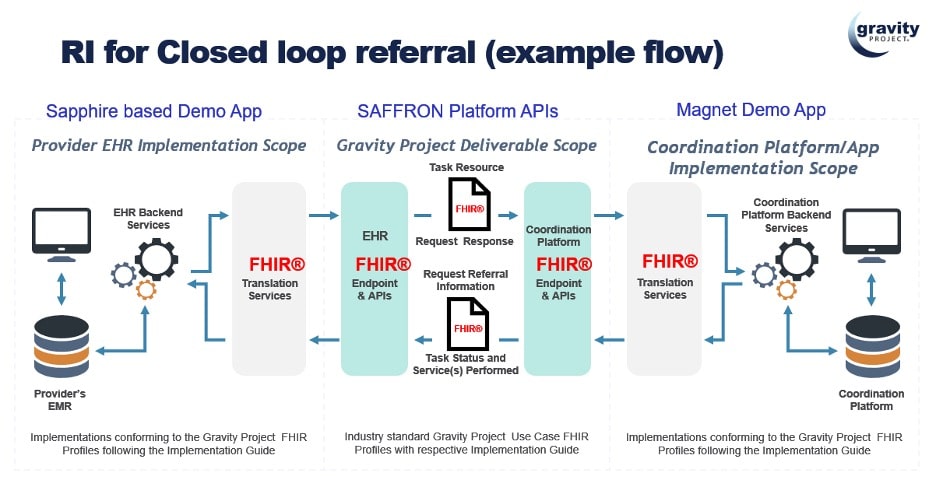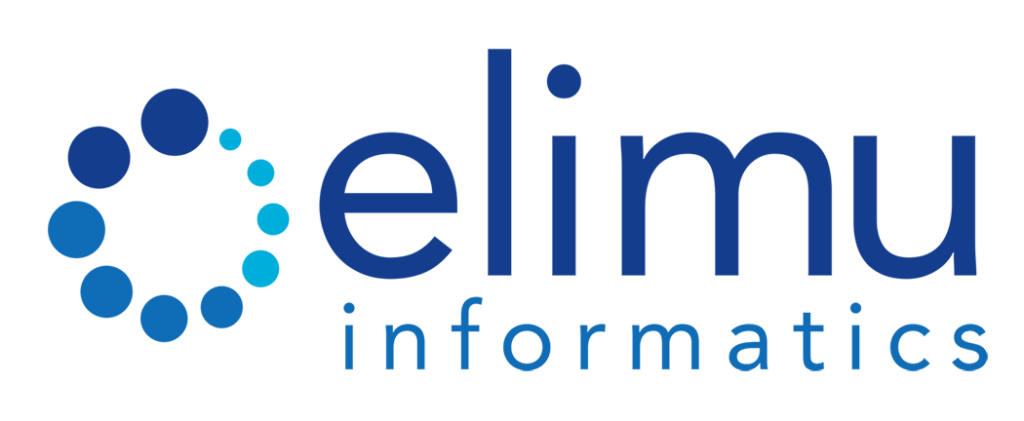Oct 27, 2022 |
While there is a growing awareness in both doctor’s offices and health IT markets of the critical role Social Determinants of Health (SDOH) play in individual health outcomes and in our healthcare delivery system, we are still struggling to build the infrastructure and standards to integrate at scale the life conditions represented by SDOH into our medical records.
This is the first in a series of blogs from Elimu and SAFFRON Labs to both report on and shape the ongoing conversation about building that SDOH infrastructure and standards in such a way that the social equity implicit in the SDOH “movement” can be realized.
To start, let’s look at the work of the Gravity Project as it was concretely realized at the most recent Centers for Medicare & Medicaid Services (CMS) Connectathon.
The goal of the Gravity Project is to develop consensus-based standards for the exchange of social determinants of health (SDOH) data within the healthcare sector and between the healthcare sector and other sectors for patient/person-centered care, care coordination between the health and human services sectors, population health management, value-based payment, quality reporting, and clinical research. To advance this interoperability goal, the Gravity Project joined the HL7 FHIR Accelerator Program in August 2019 and is developing specifications to support the use of SDOH data using FHIR. The specification includes the creation and administration of SDOH-focused assessments, creation of goals and interventions/referrals, and tracking them to completion. It provides for workflow specifications between the various participants in documenting and managing social risks.
A big shout-out to the wonderful participants who developed and demonstrated some very impressive implementations illustrating various components of the Gravity Social Determinants of Health (SDOH) Implementation Guide at the recent CMS Connectathon. We at Elimu and SAFFRON Labs were very excited and honored to be a part of an event celebrating the collaborative accomplishments of many innovators advancing interoperability standards and creating solutions for addressing SDOH. Elimu Informatics’ Sapphire App Assembler made it possible to deploy a clinician-facing, EHR-Integratable app in only 3 weeks from design to deployment for the connectathon. This Smart-on-FHIR app was designed to enable review of Food Insecurity assessment data, referral to an appropriate Community-Based Organization (CBO) via NewWave’s Saffron Labs Care Coordination platform and receipt of referral status updates.
There were several scenarios demonstrated that illustrate how the IG standards support the capture of structured data about a patient’s SDOH needs, interoperable exchange of information among the stakeholders, and coordination of closed-loop referrals by clinicians to community-based organizations (CBOs). These use cases were demonstrated by our teams at NewWave and Elimu as well as our colleagues at MaxMD, HealthLX, Open City Labs, Zane Networks, May Juun, Goldbelt Frontier, and ACF.
More information, including recording, slides, and scenario details, are available here: confluence connectathon, but there are no slides or recordings posted there.
If you’re new to Gravity and have a strong interest in SDOH and how FHIR standards are evolving to meet the needs for exchanging information among providers, CBOs, payers, and patients please get in touch and follow this series of blogs.

While the goal id the closed-loop referral, each component must provide for interoperability at scale
